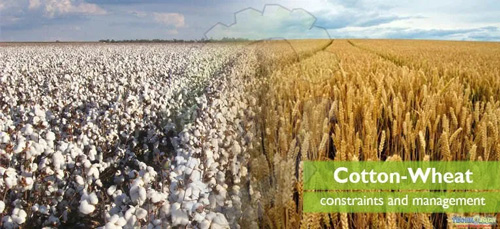Staff Reporter
Lahore
Secretary General (Federal) FPCCI’s Businessmen Panel, Ch. Ahmad Jawad has said Pakistan should seek Chinese support in initiating a seed breeding programme for major crops, especially cotton and wheat for better productivity.
Talking to media on Sunday, Jawad said agriculture sector has been facing a chronic policy-and-investment neglect. This is partly due to its reduced contribution to the GDP. It is also due to rapid urbanization at the cost of cultivable lands and the fact that a majority of the farmers (owners of small landholdings) have no means to get policy maker’s ear.
He said, “Pakistan needs substantial investment in agricultural supply chain management. We even lack quality storage and transport facilities, especially cold storage facilities and refrigerated transport to handle perishable food commodities, especially meat and dairy products. Acquiring these facilities would play a key role in determining the fate of agri-trade, both in domestic and international markets.”
The SG FPCCI’s BMP informed that country control operations are in progress against hopper groups and bands in the Nagarparkar area of southeast Sindh. Groups of adults are maturing in Tharparkar and Cholistan deserts where laying is expected in areas that have already received monsoon rains. This will cause a further increase in locust numbers as hatching and hopper band formation occur in the coming weeks.
Jawad said though all provinces were affected by the locust attack, but the damage remained below fifty percent in all the areas due to timely intervention of National Locust Control Centre. As per the latest findings of the World Economic Forum suggest a small swarm (on an area of one square kilometre) may contain up to 80 million locusts. They can consume the same amount of food in one-day as 35,000 people, while a large swarm can eat up to 1.8 million metric tons of green vegetation, equivalent to food enough to feed 81 million people.
“Pakistan has only one to two months to win the war against local swarms. After that more locust swarms may migrate to Pakistan from Africa,” said Jawad.
According to official figures, fifty seven million acre area has been affected by the locust this year of which twenty three million acres were agricultural land.
He also urged the government about import substitution of edible oil where Pakistan spends more than $3.2 billion. The import of edible oil and its seed has doubled since 2014-15. “In Sindh, the cultivated area of oils seed has declined from 260,000 hectares to 80,000 hectares,” he said.










